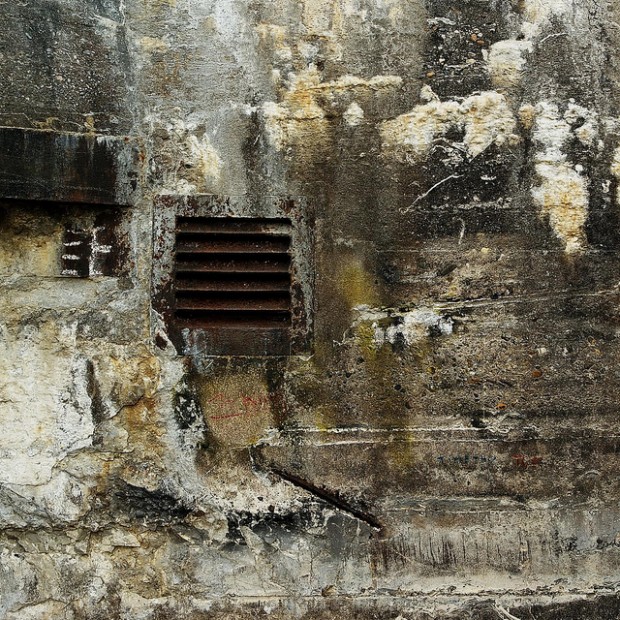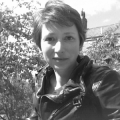You have no items in your cart. Want to get some nice things?
Go shopping
The path was once asphalt: you can see that straight away, but moss has almost grown over it, the richest green, creeping in from the edges. The ornamental birches of the garden have run wild: underfoot there are scatters of small leaves, as if someone has shaken the shapes from a thousand playing cards, and we’re walking over a carpet of golden hearts and spades. From somewhere nearby comes the hollow drone of a woodpecker. Otherwise, nothing.
It’s been twenty years since the Russian army left here, and no one’s used it since. As we struggle along the path to the house, snagging our clothes on thorns and brushing creepers aside, a statue looms to our right. The round head, the high cheekbones, the pointed beard and short neck are unmistakable: Lenin, poor man, is flaking badly, abandoned to overlook the empty bramble-filled bowl of the fountain. He gazes over it into the far distance, straight-backed, his chin raised, ignoring the dilapidation behind him, the broken windows and rustling trees.
This whole area was once a Soviet army zone, forbidden to Germans. It’s a place of lakes and pine and beech trees, endless forest. The woods around here are full of army barracks, their roofs falling in and teenage graffiti blurring the hammer-and-sickle mosaics by their doors. But this house, a grand mansion with a baroque stone balcony and a wide terrace sweeping up to the front doors, was built for rest cures back in the 20s. It’s a short walk from a lake; nearby are the old vacation villas of wealthy Berliners, confiscated by the Nazis, then commandeered by the Soviets, and then abandoned for years.
We skirt the house. Basement windows still have their decorative ironwork — a sunburst now scuffed with mould. The jolliness has been sobered with a layer of pale army paint. All over the building, plasterwork is peeling off, and way up on the fourth floor, under the roof, a sapling has taken root. Behind the building, a recessed door leads into a long grassy embankment. The door is a sheet of grey metal, scored and blistered, with a row of solid bolts and hinges. It’s half-open. We hesitate at the entrance to the bunker. “Want to look in?” — “You’ve got to be joking!” We peer inside. Bare concrete walls; a coffee cup. A sign in Cyrillic, turned upside down.
After reunification, Helmut Kohl promised the former GDR “blühende Landschaften” — blossoming landscapes, a vision of the economic abundance the West could bestow. Twenty years later, towns on the eastern side of the country have bled thousands of workers to Munich and Frankfurt and Stuttgart. Local rumours say this house has been bought by developers, who are still wondering what to do with it. A hotel, perhaps. In summer the area’s popular with day trippers, and some ideas work, while others inexplicably fail. We turn back, down the overgrown path, back over the golden leaves. Behind us, the ruins, the silence, the eager forest.

About E.E. Mason
After spending seven years in Berlin, E. E. Mason moved to Vancouver to pursue an MFA in Creative Writing. She now lives in London. Her work has appeared in Malahat Review.




